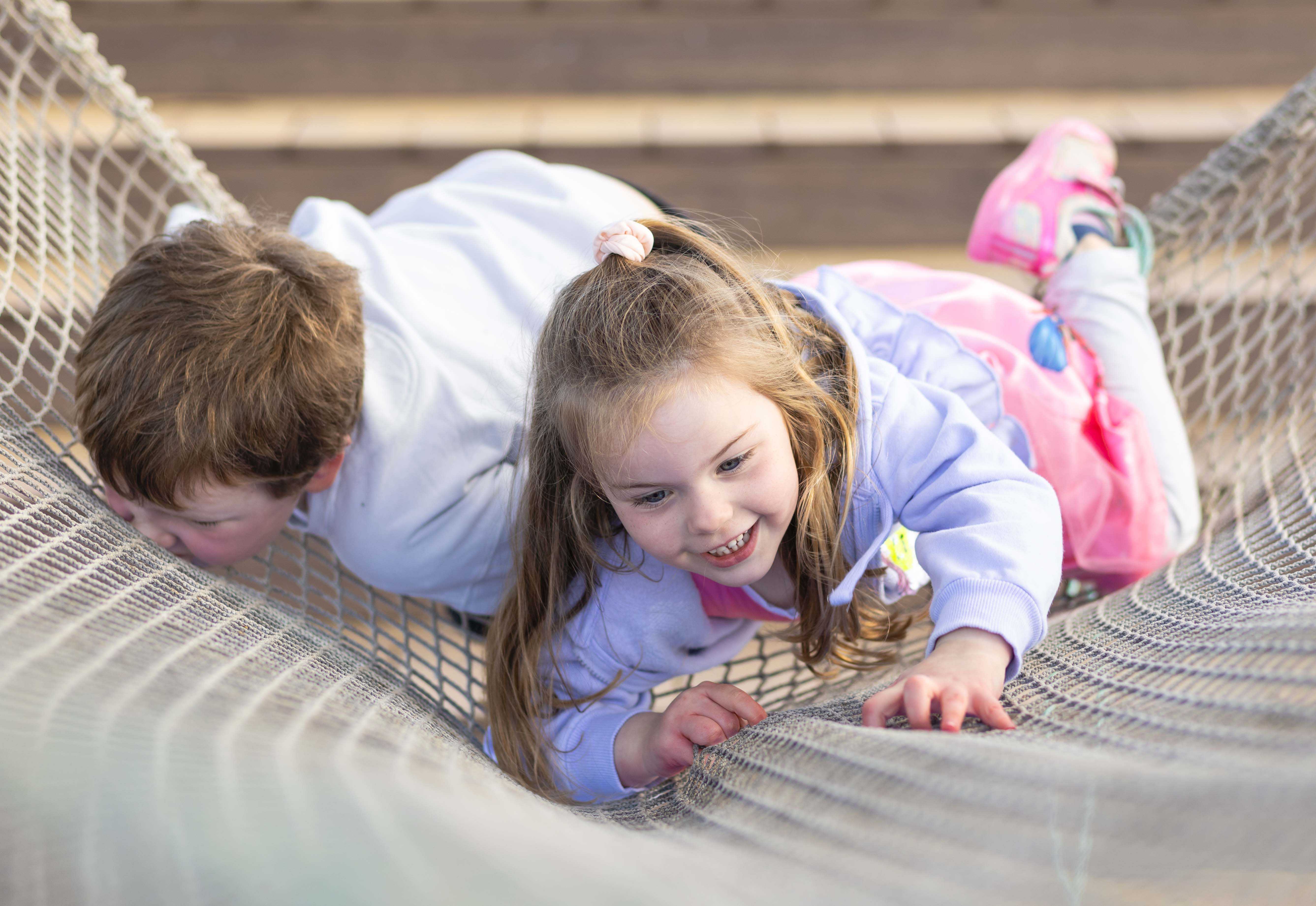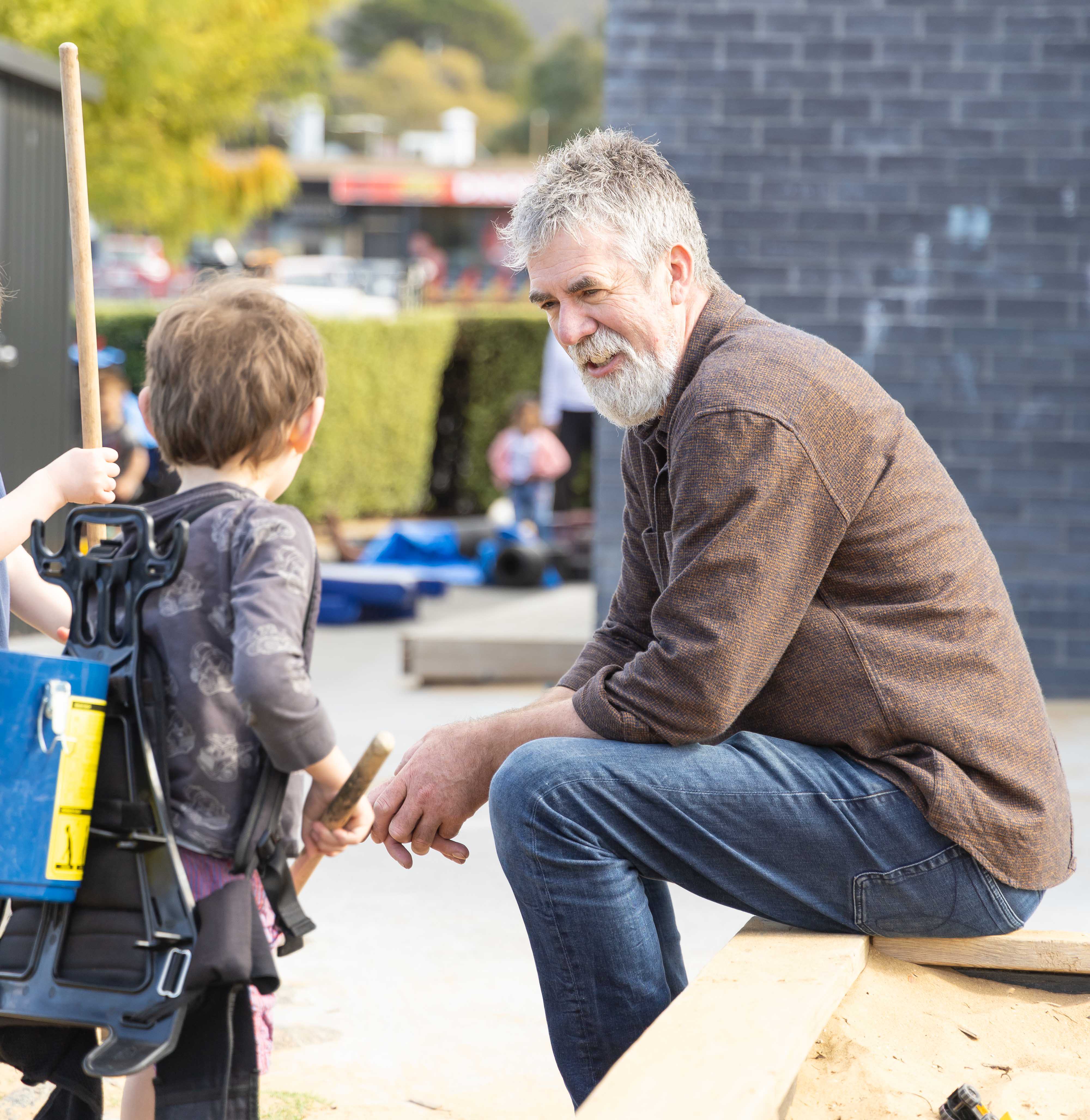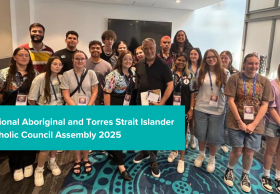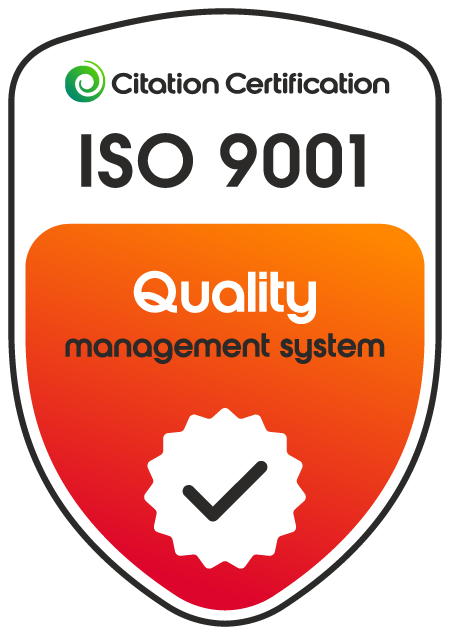Woodwork, tinkering, whittling, and fire-making – it is all child’s play to Scott Gibson.
The CatholicCare Pedagogy and Practice Consultant is “bringing childhood back to children” – empowering adults to confidently facilitate adventurous play for kids.
“My purpose is centred on enriching children's childhoods by fostering positive memories and meaningful experiences during their time in Outside School Hours Care (OSHC),” he explained.

“Reflecting on my own upbringing as a free-range child – I have wonderful memories of exploring the outdoors with friends, climbing trees, building cubbies, and engaging in activities like creek damming, using real tools, building billy carts, exploring rock pools, and cooking on fire – deeply informs this commitment.”
In a risk-averse society, Scott said the opportunities for children to engage in such experiences have dwindled.
“A recent study highlighted the discrepancy: while 73 percent of Australian adults spent more time outdoors than indoors during their youth, only 13 percent estimated the same for their own children,” he said.
“This is where my expertise can contribute, aiming to provide children the chance to engage in these enriching childhood activities, supporting their mental health and wellbeing along the way.”
Scott, who has conducted hundreds of workshops for educators and interactive sessions for more than 10,000 children, is driven to equip children with practical skills through experiential learning. A pivotal aspect of his role involves guiding educators in facilitating activities such as street art, printmaking, tinkering, sewing, cooking, and cubby building.
“My present role revolves around supporting OSHC teams in developing skill-oriented programs that foster free play, reminiscent of our own childhoods,” he said.
“In collaboration with our leadership team, I am actively formulating a strategy to deliver outstanding programs. This encompasses workshops, mentoring, streamlined systems, and community connections.”
Previously, Scott was extensively involved in supporting educators and teams to address challenging behaviours and their impact on OSHC programs.
“Often, a deeper examination revealed that children sought more stimulating and engaging play options and surprisingly, the source of these behaviours wasn't always the child themselves but rather their desire for more dynamic play experiences,” he said.
“Educators can find themselves unintentionally hindering such play due to personal experiences, concerns about safety or their own biases. Encouragingly, introducing more stimulating activities while training educators to embrace them led to increased engagement, reduced challenging behaviours, and fewer instances of injuries.”

Scott said a primary current focus was elevating the skills of educators, equipping them to deliver exciting programs that children eagerly participate in.
“This involves continuous professional development support, including workshops and mentoring,” he said.
“Once we establish a robust support system, our aim is to foster connections with other organisations and the community, spotlighting the exceptional work we do with and for children.”
Other news you may be interested in
Woodwork, tinkering, whittling, and fire-making – it is all child’s play to Scott Gibson.
The CatholicCare Pedagogy and Practice Consultant is “bringing childhood back to children” – empowering adults to confidently facilitate adventurous play for kids.
“My purpose is centred on enriching children's childhoods by fostering positive memories and meaningful experiences during their time in Outside School Hours Care (OSHC),” he explained.

“Reflecting on my own upbringing as a free-range child – I have wonderful memories of exploring the outdoors with friends, climbing trees, building cubbies, and engaging in activities like creek damming, using real tools, building billy carts, exploring rock pools, and cooking on fire – deeply informs this commitment.”
In a risk-averse society, Scott said the opportunities for children to engage in such experiences have dwindled.
“A recent study highlighted the discrepancy: while 73 percent of Australian adults spent more time outdoors than indoors during their youth, only 13 percent estimated the same for their own children,” he said.
“This is where my expertise can contribute, aiming to provide children the chance to engage in these enriching childhood activities, supporting their mental health and wellbeing along the way.”
Scott, who has conducted hundreds of workshops for educators and interactive sessions for more than 10,000 children, is driven to equip children with practical skills through experiential learning. A pivotal aspect of his role involves guiding educators in facilitating activities such as street art, printmaking, tinkering, sewing, cooking, and cubby building.
“My present role revolves around supporting OSHC teams in developing skill-oriented programs that foster free play, reminiscent of our own childhoods,” he said.
“In collaboration with our leadership team, I am actively formulating a strategy to deliver outstanding programs. This encompasses workshops, mentoring, streamlined systems, and community connections.”
Previously, Scott was extensively involved in supporting educators and teams to address challenging behaviours and their impact on OSHC programs.
“Often, a deeper examination revealed that children sought more stimulating and engaging play options and surprisingly, the source of these behaviours wasn't always the child themselves but rather their desire for more dynamic play experiences,” he said.
“Educators can find themselves unintentionally hindering such play due to personal experiences, concerns about safety or their own biases. Encouragingly, introducing more stimulating activities while training educators to embrace them led to increased engagement, reduced challenging behaviours, and fewer instances of injuries.”

Scott said a primary current focus was elevating the skills of educators, equipping them to deliver exciting programs that children eagerly participate in.
“This involves continuous professional development support, including workshops and mentoring,” he said.
“Once we establish a robust support system, our aim is to foster connections with other organisations and the community, spotlighting the exceptional work we do with and for children.”
Other news you may be interested in
Other news








